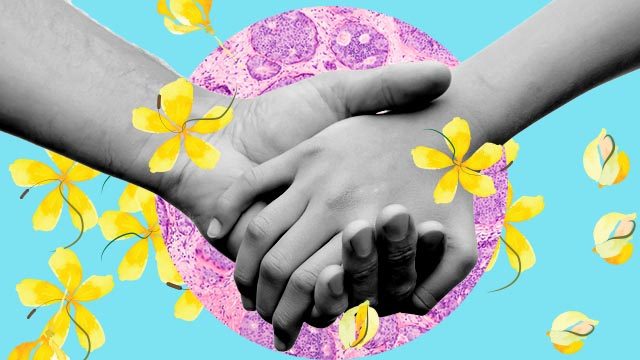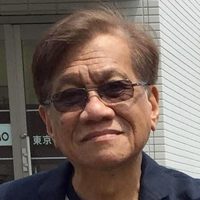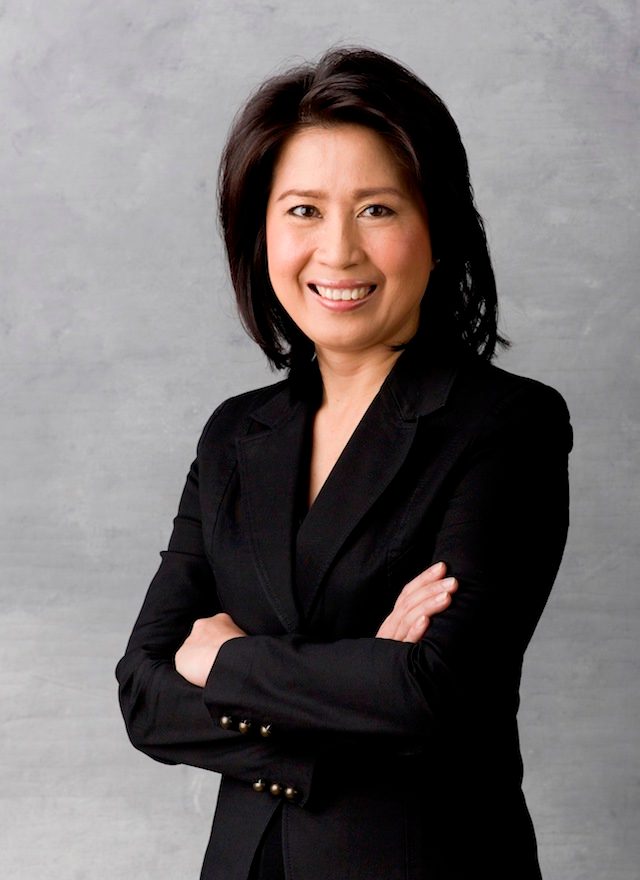SUMMARY
This is AI generated summarization, which may have errors. For context, always refer to the full article.

 Whenever she was in extreme pain, she would tell me that if this was going to be her life, then it was not worth living. But two weeks before she left forever, as her weakened legs made their way down the ramp, her right arm draped around her caregiver’s shoulder, she gave me an imploring look. It said she wanted so much to live. It was then that I first really broke down in the four-and-a-half years that I had nursed her in her long-drawn-out battle with what we had named the “Big C”, perhaps fearing bad luck should we call the Enemy by its name.
Whenever she was in extreme pain, she would tell me that if this was going to be her life, then it was not worth living. But two weeks before she left forever, as her weakened legs made their way down the ramp, her right arm draped around her caregiver’s shoulder, she gave me an imploring look. It said she wanted so much to live. It was then that I first really broke down in the four-and-a-half years that I had nursed her in her long-drawn-out battle with what we had named the “Big C”, perhaps fearing bad luck should we call the Enemy by its name.
A few days later, lying in bed, she asked me if stem cell treatment was still an option. “I know it won’t reverse it, but probably it might delay things,” she said. It took me some time to gather the strength to tell her that our doctor friend had told me that the treatment was only effective in reversing multiple myeloma or leukemia, not colon cancer.
What I did not tell her was that our friend had also told me that he would look into immunotherapy, another treatment, but one that was still in an experimental stage and needed subjects. I did not want to raise false hopes, especially now that she was in a terminal state, but I desperately wished that she would still qualify for the treatment and that slight possibility buoyed me, almost becoming a reality in my imagination.
Missing sashimi
The day our friend told me about the possibility of immunotherapy, I went around town looking for the best tonkatsu, a Japanese pork dish that she had fallen in love with when we stayed for a month in Tokyo last year. I brought her the best I could find in Bangkok, and when she tasted it that night, she said, “It’s not bad, but can you bring me some sashimi tomorrow night?”
Early next morning, our friend called me and said he was sorry to have disappointing news, but immunotherapy would only be licensed for experimental use in December. I was crestfallen, but I told myself that at least she could still look forward to having sashimi for dinner. But by the time I got to the hospice, I was told she hadn’t woken up and had slipped into a deep coma at dawn.
No, she won’t regain consciousness, the chief nurse told me, and about 30 hours later, at 4:34 pm, March 27, 2018, my wife, Suranuch “Ko” Thongsila passed away, with me, her relatives, and a few friends looking on numbly as the electrocardiogram flatlined.
The proposal
It was about 5 years ago, sometime in March 2013, while I was about to return to the Philippines from the United States, that I got a message from her that read, if I remember rightly, “My mother is dying. I need you.” It was curious, but it was a message to which the only possible response was, “Yes, I’m coming right away.”
Ko was a good friend, with whom I had kept in touch over the years, ever since she translated my book A Siamese Tragedy into Thai about 13 years earlier. We sometimes had dinner when I went to Bangkok while I was still on the staff of Focus on the Global South, a research institute I co-founded in 1995, but these were reunions where we caught up with each other’s life, and a romantic love life was the last thing on our minds.

By 2013, Ko had moved into the center of humanitarian activity in Thailand. As the executive director of the Siam Cement Foundation, the corporate responsibility arm of one of Thailand’s biggest corporations, she had played a key role in the rebuilding of Southern Thailand after the devastating tsunami that killed over 5,000 people in 2004 and in the government-civil society effort to stop the massive floods raging towards Bangkok in 2012.
In the process, she had built up an extensive network of friends and colleagues that included politicians, academics, and civil society activists. She was especially close to former Prime Minister Anan Panyarachun, who had become a father figure to her, and was on familiar terms with people from all parts of Thailand’s political spectrum, like former Prime Ministers Abhisit Vejjajiva and Chuan Leek Pai of the Democrat Party, and Chaturon Chaisang, a parliamentarian who was one of the leading personalities in the “Redshirt” government of Ying Luck Shinawatra.
Not surprisingly, being a very attractive and still unmarried career woman, she had many prominent males in hot pursuit of her, and over our dinners over the years, she sometimes talked about her liaisons and why she ended up turning down offers of marriage. The reasons were diverse, but the main reason, which she acknowledged in a joking fashion, was that she was a career woman in a hurry, who had no time for marriage.
I felt that the text she sent me in March 2013 was not an ordinary hey-good-friend-come-see-me-message, and true enough, when I got to Bangkok, she told me that her mother had said she would be more at ease departing for the afterlife if she knew somebody would take care of her before she died.
Though not on easy terms with her mother, Ko took her request seriously, thought it over carefully, and came to the conclusion that the only person she thought would fit the bill as a lifetime partner was me. This jolted me, but I also knew that saying no to this extraordinary, beautiful woman that I had perhaps subliminally desired over the years was not an option. Still, I was curious why she chose me.
The one thing I was sure of was that she did not choose me because I was a member of Congress. If political or social prominence was a prime criterion, then there were certainly much more attractive personalities on the Thai social scene that she could have had for the asking.
It was an intriguing puzzle, but playing Sherlock Holmes as to her motives was the last thing on my mind at the time of her mother’s funeral in Bangkok in May 2013, which also served as our formal coming out as a couple. To her close friends, it came as a total surprise.
“How come we never knew about you and this guy?” they would ask her, to which she would laugh and reply, “But I did not know about it myself.” As for me, I was not exactly comfortable being sized up by some of her male friends, some of whom probably felt a national treasure was being snatched from them by a Filipino who came out of the blue.
Her mother’s funeral also marked another development in Ko’s life, and that was her exit from active participation in Thailand’s social and political life. It was something that I only began to realize over time, but it eventually became a big a puzzle as to why she decided to choose me as her partner.
The good life interrupted
Ko was eager to get on with what she regarded as her new life in the Philippines, and she happily adjusted to the role of being a congressional wife, one that was so different from her role as a decision-maker and activist in Thailand. When with friends, I kidded her that she might eventually regret having a partner 17 years older than her since she would end up taking care of me in my old age, to which she replied that adult diapers had greatly simplified that task.
We had a lovely 5 months, until she was diagnosed with fourth stage colon cancer during a routine visit to her gynecologist in Bangkok in August 2013. The first thing she did when she heard this was to sit me down and tell me, “You did not bargain for this. You are under no obligation to remain in this relationship. You are free to leave.” I must have said something like, silly girl, did you think I would be that easy to shake off, and we hunkered down for the battle with the Big C.
Her first surgery took off a good chunk of her colon and some of her liver. Six cycles of chemotherapy followed, which left her drained of energy and numb in different parts of her body. A second surgery removed more of her liver, leaving her with just about a fourth of it, and this was followed by another debilitating bout with chemo, also 6 cycles long.
Two more surgeries followed, interspersed with chemotherapy and radiation therapy. The surgeries and treatments battered her body, with her complaining that what was causing her pain and discomfort was not the cancer but the different operations and treatments. Our lives begun to be built around early morning visits every two weeks to Chulalongkorn University Hospital for a daylong consultation with different specialists, inpatient and outpatient chemotherapy sessions, and when things really got rough, hospitalization for days or even weeks.
She did everything, including undergoing alternative therapies like an all-vegetable diet, and she registered great frustration at how Western-trained doctors and alternative therapists would simply dismiss each other’s prescriptions.
“I asked the doctor if I needed to avoid meat or cheese, as the nutritionists recommended, but he said I could eat anything and told me not listen to those people,” she said, shaking her head at the feud between Western-trained cut-and-chemo doctors and the you-are-what-you-eat school of cancer nutritionists.
Gradually, my priorities shifted. These were tumultuous times for me politically, with me resigning from Congress owing to my differences with the policies of then president Benigno Aquino III and being drafted to run for the Senate in 2016. Ko was adamant that her condition must not interfere with my political agenda, and she insisted that I go home to the Philippines to campaign even as she underwent a particularly draining bout with chemotherapy in Bangkok.
But long before the 2016 campaign, I had already made a choice, and that was to place keeping her alive at the top of my agenda, with politics and writing relegated to a distant second. This meant long absences from Manila to be with her in Bangkok. To be concluded – Rappler.com
Add a comment
How does this make you feel?
There are no comments yet. Add your comment to start the conversation.